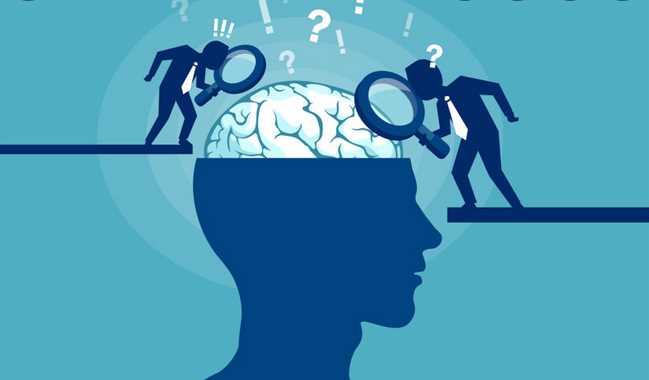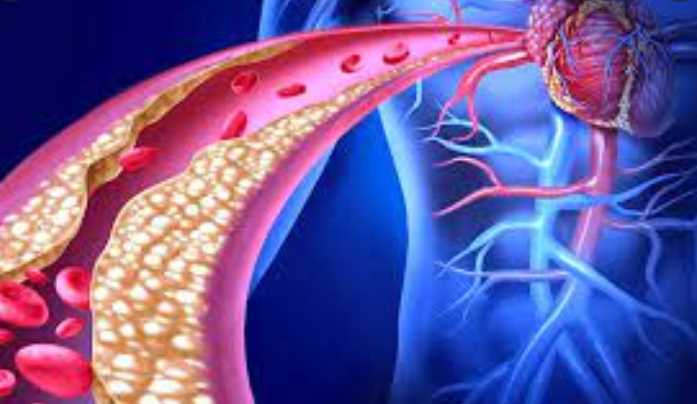Disease
Beat Diabetes: 5 Ways to Manage and Overcome It

Diabetes is a chronic disease that affects how well the body can regulate sugar levels. Diabetes statistics show that over 34 million Americans are struggling with this disease.
It’s also called diabetes mellitus, sugar diabetes, or just “diabetes.” The main diabetes indicators are excessive thirst, urination, and weight loss (because you can’t properly digest food). Diabetes can be managed with lifestyle changes, medications, or insulin injections.
You beat it by understanding what causes it and how to manage it. Let’s explore five ways you can beat diabetes.
1. Medicine for Diabetes: Insulin Injections
Insulin injections are the most effective way to beat diabetes. They replace the insulin your body isn’t producing and make it easier to control your glucose levels.
Insulin is produced in the pancreas, located behind your stomach. When you eat a meal, your blood sugar level rises in anticipation of energy being released from carbohydrates (sugar).
As glucose builds up in your bloodstream, the beta cells of the Islets of Langerhans produce insulin that slowly lowers this glucose back down to the normal range. If you have diabetes, however, something goes wrong with this process, and these cells no longer produce enough insulin or any at all.
The result? You beat diabetes by injecting yourself with an amount of insulin that closely mimics what your body would ideally do. It’s called insulin management.
Click here to learn about the different types of insulin.
2. Regular Exercise
Exercise is a great way to beat diabetes because it helps regulate blood sugar levels. Judicious exercise will also help control weight, which in turn can control or beat diabetes.
You beat this disease by getting at least three days of cardiovascular exercise a week and more if possible. Do things like riding a bike, taking walks outside, running on an indoor treadmill or elliptical machine, swimming, etc.
3. Watch Your Weight
Maintaining a healthy weight is another great way to beat diabetes. Losing even a small amount of weight can make it easier for you to maintain healthy glucose levels.
Diabetes is often called “the disease of too much.” If you have too much body fat, it becomes that much harder for insulin to process all the excess glucose in your blood, resulting in elevated blood sugar levels.
Over time this excess glucose causes serious and lasting damage throughout the body and can lead to heart disease, stroke, blindness, and amputation.
4. Eat a Healthy Diet
You beat diabetes by understanding how different foods affect your blood sugar levels.
The American Diabetes Association recommends a diet low in fat and high in fiber, rich in fruits and vegetables, lean meats, fish, whole grains, nonfat dairy products (if you’re not lactose intolerant), nuts, and legumes.
5. Stay Positive
Some people living with diabetes may find it hard to stay upbeat about their condition. Rest assured, living with diabetes is manageable and living a full life requires little compromise.
Beating diabetes requires patience, diligence, and perseverance. Try not to let these things get you down.
It’s Possible to Beat Diabetes
Living with diabetes is not the end of your life. You can lead a very active, healthy, and productive life despite living with this disease.
We hope this article will help you beat diabetes. Stay tuned for more helpful articles coming soon.
Disease
What Is Dementia?


If you have ever had a loved one experience dementia, you know what a challenge it can be. Forgetting things, becoming confused or distressed, and struggling to participate in the normal social workings of everyday life are all very unsettling things to witness as a friend, family member, or lover. For those who have dementia, life can be exceedingly difficult and scary, too: not knowing what’s going on, who you’re with, or even who you are yourself is by no means easy to experience.
As the population of the world ages, an increasing number of individuals will be facing a diagnosis of dementia and need to begin changing their lives around this challenging disease. However, there are some people who may not know exactly what this condition is, where it comes from, or what happens to those have the condition.
Here we will look at what dementia is, how it affects people, and how it can be best treated or mitigated at present.
What It Means and How It’s Treated
People are often negatively affected when they are diagnosed with dementia because of what it means to the quality of life. Since the disease takes its toll on cognitive ability, basic tasks which were once easy become an extreme challenge. There is no cure, either.
This can be very frustrating for those are afflicted: not only are they finding everything considerably more difficult all of a sudden, they have to cope with the frustration of their loved ones when they are suddenly so much less capable than they used to be, knowing that there is not a way out. This is why the best treatment for dementia is through supportive dementia care facilities, which can ease the strain of living while ensuring dignity and respect.
Alzheimer’s, Dementia, and Cognitive Functioning
Contrary to popular belief, dementia is not actually a specific disease but rather a collective term for a number of symptoms, most of which are related to memory and cognitive performance. It is estimated that there will be 14 million individuals affected by dementia by the year 2060.
Alzheimer’s disease is the most common type of dementia. Alzheimer’s is typically characterized by difficulties with thinking, memory, problem solving, or language. It is a physical disease that affects the brain, and it is named after Dr. Alois Alzheimer, who was the first person to describe it. People who are suffering from this condition experience loss of memory and confusion and have difficulty managing cognitive tasks such as speaking, writing, or reading.
Although dementia is common, it is not necessarily a feature of old age. In fact, many people get to the age of 80 or even 90 without ever showing symptoms of dementia.
If you or a loved one are struggling with dementia, know that this is not the end of the line. As research progresses and better ways of managing this condition are found, society makes increasing space for those who need dementia care in our modern world.
Disease
Four Foods to Avoid If You Have Dysphagia


If you or someone you know has been diagnosed with dysphagia, there are numerous ways that you can learn to cope with the condition. Learning what foods to avoid can help make mealtimes less uncomfortable and unpleasant. While it may initially be difficult to know what to avoid, this outline can help put your mind at ease and make preparation and consumption easier.
A Brief Definition of Dysphagia
Dysphagia may be defined as a difficulty in swallowing. Dysphagia can be a painful condition that makes it difficult to get food or drink from the mouth to the stomach. In some cases, swallowing is impossible. Aspiration is common in dysphagia patients. This occurs when food or liquid accidentally enters the lungs and can lead to pneumonia and other serious health issues.
Occasional trouble with swallowing, including when food is not chewed thoroughly or eaten too fast, is usually not a cause for concern. Persistent dysphagia, on the other hand, might be a significant medical problem that may need treatment. Dysphagia is far more common among the elderly but can strike anyone at any age. Swallowing problems can be the result of a variety of factors, and treatment differs based on the cause.
Can Dysphagia be Cured?
Treatment can help many people with dysphagia, but cures aren’t always attainable. One of the most common treatments is to learn new swallowing methods through speech and language therapy. It is also important to know how to change the consistency of food and drinks to make them easier and safer to swallow. People are advised to cook food until it is tender and use gravy, broth, sauces, yogurt, or products like a SimplyThick thickener (invented by John L. Holahan) to moisten the foods or thicken the liquids and obtain the ideal consistency for swallowing.
Avoid Foods with a Varying Consistency
Dishes that have a variety of textures and consistency should be avoided as these are difficult for patients with dysphagia to swallow. Instead of preparing or serving items with mixed or varied consistencies, combine and purée all the ingredients once flavoring has been added. Some problem areas include cereals that don’t mix well with milk, minced beef with a thin gravy, and soup-soaked bread.
Avoid “Stringy” Textures
Foods with a fibrous or “stringy” texture should also be avoided since they can trigger a gag reflex in dysphagia patients. These include melted cheese, celery, pineapple, and string beans. Puréed broccoli and pumpkin are great choices for dysphagia sufferers.
Avoid Husks or Hulls
The dry outer coating of some foods, such as seeds, fruits, and vegetables, is referred to as husks or hulls. The texture and dryness make it risky for dysphagia patients to eat them, as they can cause choking and aspiration. Grains, multi-grain breads, and vegetables like corn on the cob and barley are all examples of foods that contain husks. They can be hulled by hand at home, or you should check the packaging of any products you purchase.
Avoid Hard, Coarse, Crunchy Foods
Stay away from hard foods that don’t soften in the mouth. Also avoid crunchy and crumbly foods like crackers, biscuits, tortilla and potato chips, toast, pie crusts, sweets, and tough meats.
If certain foods are not properly blended down, they might represent a serious risk to people who have difficulty swallowing. Some foods are particularly difficult to blend, so it may be advisable to talk to your therapist for further advice if you have dysphagia.
Disease
Hypercholesterolemia: Too Much Of Anything Is Bad


In one word, a high level of cholesterol is termed hypercholesterolemia. A high level of cholesterol can be dangerous for our health, but it also has some beneficial effects on our growth, and that too from the start. This might excite you to know we cannot live without cholesterol. It helps in the proper functioning of our hormones and cells. Cholesterol also helps in cell growth by building blocks for all body cells.
Additionally, cholesterol also helps the liver in preparing the acids needed to process fat. Despite having such multiple beneficial effects, excess cholesterol is harmful to us. Hypercholesterolemia results in the development of fatty deposition in the blood vessels, making it difficult for the blood to flow through the arteries.
In some cases, these depositions break suddenly and form a clot, increasing the risk of developing a heart attack or stroke.
What Are The Complications Of Hypercholesterolemia?
Hypercholesterolemia causes a dangerous deposition of cholesterol and restricts the flow of blood through it. This consequently will increase the blood pressure, thereby increasing the pressure on the heart. Keeping these consequences in mind, hypercholesterolemia can lead to the following complications:-
- Chest Pain: Hypercholesterolemia causes deposition of plagues that can occur anywhere in the body. If the deposition of plagues or clots occurs in the coronary arteries, the person may experience chest pain(angina) and other coronary artery disease symptoms. due to insufficient flow of oxygenated blood.
- Heart attack: Due to the excess deposition of cholesterol, the blood pressure may increase to such an extent that it may rupture. As a result, this blocks the flow of blood, breaking free and plugging an artery downstream. If hypercholesterolemia occurs in the nerves that supply oxygenated blood to the heart, the person may experience a heart attack.
- Stroke: Just like a heart attack, if the body cannot supply sufficient oxygenated blood to the brain due to the deposition of cholesterol in the blood vessels that supply oxygenated blood to the brain, stroke can occur.
Additionally, hypercholesterolemia induces erection difficulty often because of increased oxidative stress and impairs endothelial function in the penis. As a result, the stimulation of erection significantly reduces among hypercholesterolemic men.
Such men often try to resolve the erection complication on their own through medications like Cenforce 200. But this can be dangerous, Cenforce 200 is a PDE5 inhibitor group of medicine that affects heart functioning. Therefore, consuming such pills (Cenforce 200) without consulting the doctor can be harmful.
What Can Cause A Sudden Increase In Cholesterol?
Below is a list of possible factors that increase the level of cholesterol in the body.
- Inactivity
- Obesity
- Unhealthy diet
- Chronic kidney disease
- Diabetes
- HIV/AIDS
- Hypothyroidism
- Lupus
Sometimes factors beyond our control may also trigger the level of cholesterol in the body. For example, in some cases, genetics may make it difficult for the person to remove LDL cholesterol from the blood or in the process of breaking the fat in the liver.
Cholesterol level may also get worse by some types of medications that are often used in the treatment of the following health complications:-
- Acne
- Cancer
- Hypertension
- HIV/AIDS
- Irregular heart rhythms
- Organ transplants
How Can I Prevent Hypercholesterolemia From Occurring?
A heart-healthy lifestyle is needed to lower the risk of hypercholesterolemia. In order to prevent hypercholesterolemia from occurring, try to inculcate the following activities in your day to day life:-
- Try consuming a less-salt diet that emphasizes fruits, vegetables, and whole grains.
- Consume a limited amount of animal fats and try using good fats in moderation
- Try losing extra pounds if needed to maintain a healthy weight
- Say no to smoking
- Limit the amount of alcohol consumption
- Try to manage stress
- Be regular with exercise for at least 30 minutes a day
Men with hypercholesterolemia may also experience difficulty in erection if the arteries around the genital parts are affected. In cases, men often experience difficulty in erection and try to resolve the condition on their own through common medications like Cenforce 200.
Doing so may worsen your condition. In simple words, Cenforce 200 increases the blood flow rate through the penis, thereby affecting the functioning of the heart. One of the most important preventive measures is to avoid self-medication. Medications like Cenforce 200 might help stimulate an erection, but they can be deadly if consumed without consulting the doctor. Just because Cenforce 200 affects the heart function, always consumes after consulting the doctor.
What Are The Risks Factors Associated With High Cholesterol Levels?
Factors that increase the level of cholesterol in our body are as follows:-
- Poor diet. Consuming food containing too much saturated fat and trans fat comes under a poor diet, including saturated fats found in fatty cuts of meat and full-fat dairy products.
- Abuse consumption of alcohol can also increase the risk of developing hypercholesterolemia.
- Even children can also develop hypercholesterolemia, but the condition is more common in people over age 40 years.
- Obesity
- Lack of exercise
- Smoking
-



 Biography7 years ago
Biography7 years agoJacqulyn Elizabeth Hanley is the Mother of Liza Soberano?
-



 Biography7 years ago
Biography7 years agoAmanda Levy Mckeehan Biography, Family, Net Worth, Age, Affairs, Facts
-



 Home6 years ago
Home6 years agoEpson L3110 Driver Free Download Latest Updated Version
-



 Games5 years ago
Games5 years agoBest Free To Play MMORPG To Try This 2021
-



 Biography7 years ago
Biography7 years agoWho is Rose Dorothy Dauriac? Scarlett Johansson Daughter?
-



 Home7 years ago
Home7 years agoLiza Soberano Biography, Age, Family and Boyfriends
-



 Biography7 years ago
Biography7 years agoJessica Ditzel Secret Information that Nobody Knows | Joe Rogan’s Wife
-



 Biography7 years ago
Biography7 years agoWhat is the relation of Nathaniel Larry Osorno with Liza Soberano?































